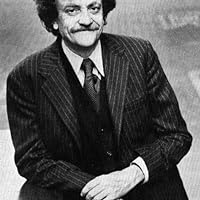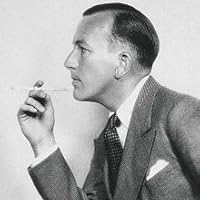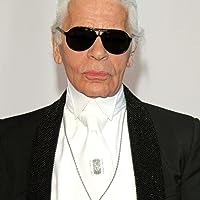Architecture Quotes
Quotes tagged as "architecture"
Showing 1-30 of 663

“A truly great book should be read in youth, again in maturity and once more in old age, as a fine building should be seen by morning light, at noon and by moonlight.”
―
―

“What are the dead, anyway, but waves and energy? Light shining from a dead star?
That, by the way, is a phrase of Julian's. I remember it from a lecture of his on the Iliad, when Patroklos appears to Achilles in a dream. There is a very moving passage where Achilles overjoyed at the sight of the apparition – tries to throw his arms around the ghost of his old friend, and it vanishes. The dead appear to us in dreams, said Julian, because that's the only way they can make us see them; what we see is only a projection, beamed from a great distance, light shining at us from a dead star…
Which reminds me, by the way, of a dream I had a couple of weeks ago.
I found myself in a strange deserted city – an old city, like London – underpopulated by war or disease. It was night; the streets were dark, bombed-out, abandoned. For a long time, I wandered aimlessly – past ruined parks, blasted statuary, vacant lots overgrown with weeds and collapsed apartment houses with rusted girders poking out of their sides like ribs. But here and there, interspersed among the desolate shells of the heavy old public buildings, I began to see new buildings, too, which were connected by futuristic walkways lit from beneath. Long, cool perspectives of modern architecture, rising phosphorescent and eerie from the rubble.
I went inside one of these new buildings. It was like a laboratory, maybe, or a museum. My footsteps echoed on the tile floors.There was a cluster of men, all smoking pipes, gathered around an exhibit in a glass case that gleamed in the dim light and lit their faces ghoulishly from below.
I drew nearer. In the case was a machine revolving slowly on a turntable, a machine with metal parts that slid in and out and collapsed in upon themselves to form new images. An Inca temple… click click click… the Pyramids… the Parthenon.
History passing beneath my very eyes, changing every moment.
'I thought I'd find you here,' said a voice at my elbow.
It was Henry. His gaze was steady and impassive in the dim light. Above his ear, beneath the wire stem of his spectacles, I could just make out the powder burn and the dark hole in his right temple.
I was glad to see him, though not exactly surprised. 'You know,' I said to him, 'everybody is saying that you're dead.'
He stared down at the machine. The Colosseum… click click click… the Pantheon. 'I'm not dead,' he said. 'I'm only having a bit of trouble with my passport.'
'What?'
He cleared his throat. 'My movements are restricted,' he said.
'I no longer have the ability to travel as freely as I would like.'
Hagia Sophia. St. Mark's, in Venice. 'What is this place?' I asked him.
'That information is classified, I'm afraid.'
1 looked around curiously. It seemed that I was the only visitor.
'Is it open to the public?' I said.
'Not generally, no.'
I looked at him. There was so much I wanted to ask him, so much I wanted to say; but somehow I knew there wasn't time and even if there was, that it was all, somehow, beside the point.
'Are you happy here?' I said at last.
He considered this for a moment. 'Not particularly,' he said.
'But you're not very happy where you are, either.'
St. Basil's, in Moscow. Chartres. Salisbury and Amiens. He glanced at his watch.
'I hope you'll excuse me,' he said, 'but I'm late for an appointment.'
He turned from me and walked away. I watched his back receding down the long, gleaming hall.”
― The Secret History
That, by the way, is a phrase of Julian's. I remember it from a lecture of his on the Iliad, when Patroklos appears to Achilles in a dream. There is a very moving passage where Achilles overjoyed at the sight of the apparition – tries to throw his arms around the ghost of his old friend, and it vanishes. The dead appear to us in dreams, said Julian, because that's the only way they can make us see them; what we see is only a projection, beamed from a great distance, light shining at us from a dead star…
Which reminds me, by the way, of a dream I had a couple of weeks ago.
I found myself in a strange deserted city – an old city, like London – underpopulated by war or disease. It was night; the streets were dark, bombed-out, abandoned. For a long time, I wandered aimlessly – past ruined parks, blasted statuary, vacant lots overgrown with weeds and collapsed apartment houses with rusted girders poking out of their sides like ribs. But here and there, interspersed among the desolate shells of the heavy old public buildings, I began to see new buildings, too, which were connected by futuristic walkways lit from beneath. Long, cool perspectives of modern architecture, rising phosphorescent and eerie from the rubble.
I went inside one of these new buildings. It was like a laboratory, maybe, or a museum. My footsteps echoed on the tile floors.There was a cluster of men, all smoking pipes, gathered around an exhibit in a glass case that gleamed in the dim light and lit their faces ghoulishly from below.
I drew nearer. In the case was a machine revolving slowly on a turntable, a machine with metal parts that slid in and out and collapsed in upon themselves to form new images. An Inca temple… click click click… the Pyramids… the Parthenon.
History passing beneath my very eyes, changing every moment.
'I thought I'd find you here,' said a voice at my elbow.
It was Henry. His gaze was steady and impassive in the dim light. Above his ear, beneath the wire stem of his spectacles, I could just make out the powder burn and the dark hole in his right temple.
I was glad to see him, though not exactly surprised. 'You know,' I said to him, 'everybody is saying that you're dead.'
He stared down at the machine. The Colosseum… click click click… the Pantheon. 'I'm not dead,' he said. 'I'm only having a bit of trouble with my passport.'
'What?'
He cleared his throat. 'My movements are restricted,' he said.
'I no longer have the ability to travel as freely as I would like.'
Hagia Sophia. St. Mark's, in Venice. 'What is this place?' I asked him.
'That information is classified, I'm afraid.'
1 looked around curiously. It seemed that I was the only visitor.
'Is it open to the public?' I said.
'Not generally, no.'
I looked at him. There was so much I wanted to ask him, so much I wanted to say; but somehow I knew there wasn't time and even if there was, that it was all, somehow, beside the point.
'Are you happy here?' I said at last.
He considered this for a moment. 'Not particularly,' he said.
'But you're not very happy where you are, either.'
St. Basil's, in Moscow. Chartres. Salisbury and Amiens. He glanced at his watch.
'I hope you'll excuse me,' he said, 'but I'm late for an appointment.'
He turned from me and walked away. I watched his back receding down the long, gleaming hall.”
― The Secret History

“Artists use frauds to make human beings seem more wonderful than they really are. Dancers show us human beings who move much more gracefully than human beings really move. Films and books and plays show us people talking much more entertainingly than people really talk, make paltry human enterprises seem important. Singers and musicians show us human beings making sounds far more lovely than human beings really make. Architects give us temples in which something marvelous is obviously going on. Actually, practically nothing is going on.”
― Wampeters, Foma and Granfalloons
― Wampeters, Foma and Granfalloons

“It is in dialogue with pain that many beautiful things acquire their value. Acquaintance with grief turns out to be one of the more unusual prerequisites of architectural appreciation. We might, quite aside from all other requirements, need to be a little sad before buildings can properly touch us.”
― The Architecture of Happiness
― The Architecture of Happiness

“Walkers are 'practitioners of the city,' for the city is made to be walked. A city is a language, a repository of possibilities, and walking is the act of speaking that language, of selecting from those possibilities. Just as language limits what can be said, architecture limits where one can walk, but the walker invents other ways to go.”
― Wanderlust: A History of Walking
― Wanderlust: A History of Walking

“I don't know what London's coming to — the higher the buildings the lower the morals.”
― Collected Sketches and Lyrics
― Collected Sketches and Lyrics

“We need houses as we need clothes, architecture stimulates fashion. It’s like hunger and thirst — you need them both.”
―
―

“As we live and as we are, Simplicity - with a capital "S" - is difficult to comprehend nowadays. We are no longer truly simple. We no longer live in simple terms or places. Life is a more complex struggle now. It is now valiant to be simple: a courageous thing to even want to be simple. It is a spiritual thing to comprehend what simplicity means.”
― The Natural House
― The Natural House

“The sculpture is already complete within the marble block, before I start my work. It is already there, I just have to chisel away the superfluous material.”
―
―

“In the architecture of their life some may display Potemkin happiness in view of hiding the dark features of their fair weather relationship, preferring to set up a window dressing of fake satisfaction rather than being rejected as emotional outcasts. ("Absence of beauty was like hell")”
―
―

“Bad architecture is in the end as much a failure of psychology as of design. It is an example expressed through materials of the same tendencies which in other domains will lead us to marry the wrong people, choose inappropriate jobs and book unsuccessful holidays: the tendency not to understand who we are and what will satisfy us.”
― The Architecture of Happiness
― The Architecture of Happiness

“We are sometimes astounded by the behavior of emotional outlaws, as they act in line with their own standards, but proceed like bulls-in-a-china-shop, create one heck of a mess in their living environment and bring about shocking disturbing dissensions, ever since their inner construction clashes with our emotional architecture. (“Disruption”)”
―
―

“The Talmud states, "Do not be daunted by the enormity of the world's grief. Do justly now, love mercy now, walk humbly now. You are not obligated to complete the work, but neither are you free to abandon it.”
―
―

“Many like to suffer, and for some, suffering can be a kind of artistic expression that challenges people and defies them with their limits, and, so, pain can be a shot to recognize the architecture and the workings of their being. (“ Rooting, hogging or... dying”)”
―
―

“The door handle is the handshake of the building.”
― The Eyes of the Skin: Architecture and the Senses
― The Eyes of the Skin: Architecture and the Senses

“Gracie: You have an unusual house. Have you lived here long?
Bobby Tom: A couple of years. I don't much like it myself, but the architect is real proud of it. She calls it urban Stone Age with a Japanese Tahitian influence. I sort of just call it ugly.”
― Heaven, Texas
Bobby Tom: A couple of years. I don't much like it myself, but the architect is real proud of it. She calls it urban Stone Age with a Japanese Tahitian influence. I sort of just call it ugly.”
― Heaven, Texas

“But I don’t understand. Why do you want me to think that this is great architecture? He pointed to the picture of the Parthenon.
That, said the Dean, is the Parthenon.
- So it is.
- I haven’t the time to waste on silly questions.
- All right, then. - Roark got up, he took a long ruler from the desk, he walked to the picture. - Shall I tell you what’s rotten about it?
- It’s the Parthenon! - said the Dean.
- Yes, God damn it, the Parthenon!
The ruler struck the glass over the picture.
- Look,- said Roark. - The famous flutings on the famous columns – what are they there for? To hide the joints in wood – when columns were made of wood, only these aren’t, they’re marble. The triglyphs, what are they? Wood. Wooden beams, the way they had to be laid when people began to build wooden shacks. Your Greeks took marble and they made copies of their wooden structures out of it, because others had done it that way. Then your masters of the Renaissance came along and made copies in plaster of copies in marble of copies in wood. Now here we are, making copies in steel and concrete of copies in plaster of copies in marble of copies in wood. Why?”
― The Fountainhead
That, said the Dean, is the Parthenon.
- So it is.
- I haven’t the time to waste on silly questions.
- All right, then. - Roark got up, he took a long ruler from the desk, he walked to the picture. - Shall I tell you what’s rotten about it?
- It’s the Parthenon! - said the Dean.
- Yes, God damn it, the Parthenon!
The ruler struck the glass over the picture.
- Look,- said Roark. - The famous flutings on the famous columns – what are they there for? To hide the joints in wood – when columns were made of wood, only these aren’t, they’re marble. The triglyphs, what are they? Wood. Wooden beams, the way they had to be laid when people began to build wooden shacks. Your Greeks took marble and they made copies of their wooden structures out of it, because others had done it that way. Then your masters of the Renaissance came along and made copies in plaster of copies in marble of copies in wood. Now here we are, making copies in steel and concrete of copies in plaster of copies in marble of copies in wood. Why?”
― The Fountainhead

“I think one of the primary goals of a feminist landscape architecture would be to work toward a public landscape in which we can roam the streets at midnight, in which every square is available for Virginia Woolf to make up her novels ”
― Storming the Gates of Paradise: Landscapes for Politics
― Storming the Gates of Paradise: Landscapes for Politics

“Every city is a ghost.
New buildings rise upon the bones of the old so that each shiny steel bean, each tower of brick carries within it the memories of what has gone before, an architectural haunting. Sometimes you can catch a glimpse of these former incarnations in the awkward angle of a street or filigreed gate, an old oak door peeking out from a new facade, the plaque commemorating the spot that was once a battleground, which became a saloon and is now a park.”
― Lair of Dreams
New buildings rise upon the bones of the old so that each shiny steel bean, each tower of brick carries within it the memories of what has gone before, an architectural haunting. Sometimes you can catch a glimpse of these former incarnations in the awkward angle of a street or filigreed gate, an old oak door peeking out from a new facade, the plaque commemorating the spot that was once a battleground, which became a saloon and is now a park.”
― Lair of Dreams

“Italian cities have long been held up as ideals, not least by New Yorkers and Londoners enthralled by the ways their architecture gives beauty and meaning to everyday acts.”
― Wanderlust: A History of Walking
― Wanderlust: A History of Walking

“A house can have integrity, just like a person,' said Roark, 'and just as seldom.”
― The Fountainhead
― The Fountainhead

“I confront the city with my body; my legs measure the length of the arcade and the width of the square; my gaze unconsciously projects my body onto the facade of the cathedral, where it roams over the mouldings and contours, sensing the size of recesses and projections; my body weight meets the mass of the cathedral door, and my hand grasps the door pull as I enter the dark void behind. I experience myself in the city, and the city exists through my embodied experience. The city and my body supplement and define each other. I dwell in the city and the city dwells in me.”
― The Eyes of the Skin: Architecture and the Senses
― The Eyes of the Skin: Architecture and the Senses

“They can do without architecture who have no olives nor wines in the cellar”
― Walden and Civil Disobedience
― Walden and Civil Disobedience

“Sooner or later, all talk among foreigners in Pyongyang turns to one imponderable subject. Do the locals really believe what they are told, and do they truly revere Fat Man and Little Boy? I have been a visiting writer in several authoritarian and totalitarian states, and usually the question answers itself. Someone in a café makes an offhand remark. A piece of ironic graffiti is scrawled in the men's room. Some group at the university issues some improvised leaflet. The glacier begins to melt; a joke makes the rounds and the apparently immovable regime suddenly looks vulnerable and absurd. But it's almost impossible to convey the extent to which North Korea just isn't like that. South Koreans who met with long-lost family members after the June rapprochement were thunderstruck at the way their shabby and thin northern relatives extolled Fat Man and Little Boy. Of course, they had been handpicked, but they stuck to their line.
There's a possible reason for the existence of this level of denial, which is backed up by an indescribable degree of surveillance and indoctrination. A North Korean citizen who decided that it was all a lie and a waste would have to face the fact that his life had been a lie and a waste also. The scenes of hysterical grief when Fat Man died were not all feigned; there might be a collective nervous breakdown if it was suddenly announced that the Great Leader had been a verbose and arrogant fraud. Picture, if you will, the abrupt deprogramming of more than 20 million Moonies or Jonestowners, who are suddenly informed that it was all a cruel joke and there's no longer anybody to tell them what to do. There wouldn't be enough Kool-Aid to go round. I often wondered how my guides kept straight faces. The streetlights are turned out all over Pyongyang—which is the most favored city in the country—every night. And the most prominent building on the skyline, in a town committed to hysterical architectural excess, is the Ryugyong Hotel. It's 105 floors high, and from a distance looks like a grotesquely enlarged version of the Transamerica Pyramid in San Francisco (or like a vast and cumbersome missile on a launchpad). The crane at its summit hasn't moved in years; it's a grandiose and incomplete ruin in the making. 'Under construction,' say the guides without a trace of irony. I suppose they just keep two sets of mental books and live with the contradiction for now.”
― Love, Poverty, and War: Journeys and Essays
There's a possible reason for the existence of this level of denial, which is backed up by an indescribable degree of surveillance and indoctrination. A North Korean citizen who decided that it was all a lie and a waste would have to face the fact that his life had been a lie and a waste also. The scenes of hysterical grief when Fat Man died were not all feigned; there might be a collective nervous breakdown if it was suddenly announced that the Great Leader had been a verbose and arrogant fraud. Picture, if you will, the abrupt deprogramming of more than 20 million Moonies or Jonestowners, who are suddenly informed that it was all a cruel joke and there's no longer anybody to tell them what to do. There wouldn't be enough Kool-Aid to go round. I often wondered how my guides kept straight faces. The streetlights are turned out all over Pyongyang—which is the most favored city in the country—every night. And the most prominent building on the skyline, in a town committed to hysterical architectural excess, is the Ryugyong Hotel. It's 105 floors high, and from a distance looks like a grotesquely enlarged version of the Transamerica Pyramid in San Francisco (or like a vast and cumbersome missile on a launchpad). The crane at its summit hasn't moved in years; it's a grandiose and incomplete ruin in the making. 'Under construction,' say the guides without a trace of irony. I suppose they just keep two sets of mental books and live with the contradiction for now.”
― Love, Poverty, and War: Journeys and Essays

“Perhaps there never was a monument more characteristic of an age and people than the Alhambra; a rugged fortress without, a voluptuous palace within; war frowning from its battlements; poetry breathing throughout the fairy architecture of its halls.”
― Tales of the Alhambra
― Tales of the Alhambra

“The white façades of the villas and apartment houses were like blocks of time that had crystallised beside the road.”
― Cocaine Nights
― Cocaine Nights
All Quotes
|
My Quotes
|
Add A Quote
Browse By Tag
- Love Quotes 97k
- Life Quotes 75.5k
- Inspirational Quotes 72.5k
- Humor Quotes 43.5k
- Philosophy Quotes 29.5k
- Inspirational Quotes Quotes 27k
- God Quotes 26k
- Truth Quotes 23.5k
- Wisdom Quotes 23.5k
- Romance Quotes 23k
- Poetry Quotes 22k
- Death Quotes 20k
- Happiness Quotes 18.5k
- Life Lessons Quotes 18.5k
- Hope Quotes 18k
- Faith Quotes 18k
- Quotes Quotes 16.5k
- Inspiration Quotes 16.5k
- Spirituality Quotes 15k
- Religion Quotes 15k
- Motivational Quotes 15k
- Writing Quotes 14.5k
- Relationships Quotes 14.5k
- Life Quotes Quotes 14k
- Love Quotes Quotes 13.5k
- Success Quotes 13.5k
- Time Quotes 12.5k
- Motivation Quotes 12k
- Science Quotes 11.5k
- Knowledge Quotes 11k




